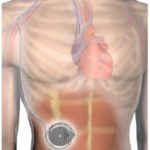Clinical trials are essential to improving the care of PAH patients. These clinical trials allow us to determine if new medicines are safe and effective. Clinical trials also allow us to make improvements to existing treatments. For example, we are eagerly awaiting the approval of the implanted pump for intravenous Remodulin. Another example of a company that is trying to … [Read more...]
Update on the Implantable System for Remodulin
On December 22, 2017, after eight years of study, the FDA has finally granted pre-market approval (PMA) to the fully implantable system for Remodulin. This groundbreaking pump and catheter system allows patients to benefit from Remodulin while minimizing the inconvenience and risks associated with having an external intravenous catheter. However, this does not mean that the … [Read more...]
Financial Assistance for Pulmonary Hypertension Patients with Medicare, Medicaid & Military Benefits
Assistance Now Available. Where to get financial assistance for the very expensive drugs used to treat Pulmonary Arterial Hypertension remains a hot topic. With an average treatment cost of around $100,000 per PAH patient per year, financial assistance is in great demand. Pulmonary Hypertension patients that are uninsured or privately insured have options for financial … [Read more...]
PAH Patient Assistance in 2018
2017 is now behind us. As 2018 begins there are some major changes in the landscape for patient assistance. For many years Caring Voices Coalition has been a leader in assisting patients with their expensive medications. However, this chapter is closing and we do not expect Caring Voices to participate in patient assistance going forward. This has left many Pulmonary … [Read more...]
Hereditary Hemorrhagic Telangiectasia (HHT) Treatment
Nose bleeding The first step in treating a nose bleed is applying pressure. You should lean forward slightly and pinch your nose with firm pressure. Don’t let go for ten minutes. When you let go, don’t try and blow your nose and avoid packing your nose with tissue paper. When you blow your nose, you will displace the clot that has stopped the bleeding. Similarly, when … [Read more...]





